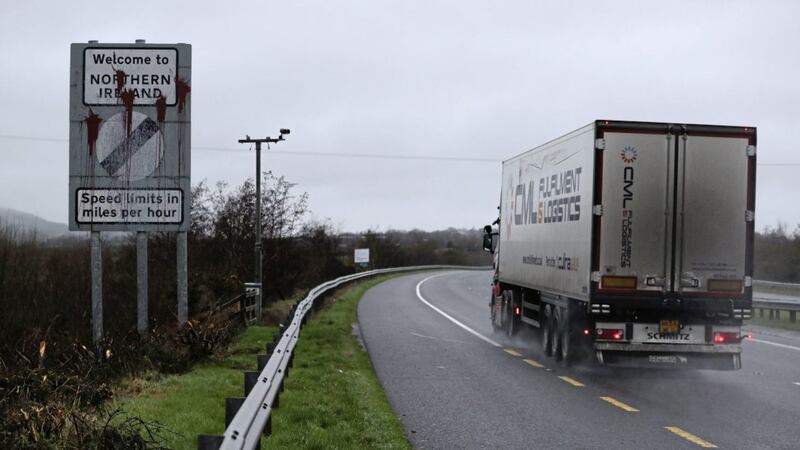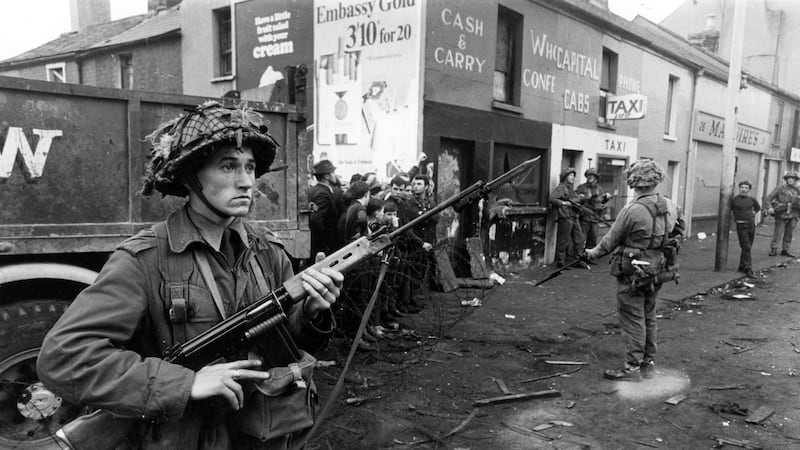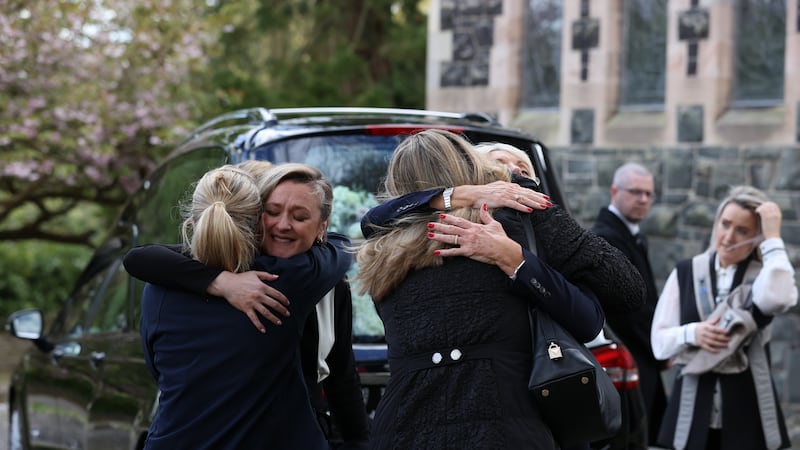THE stage and film musical Oklahoma famously features a song called The Farmer and the Cowman.
Readers of a certain vintage will be more familiar with it, especially the constant refrain that these two noble professions "should be friends".
The cowman - in deference to Calamity Jane and Annie Oakley it should be "cowperson" - who revelled in roaming the range, herding cattle in the Wild West, deeply resented it when the farmer arrived on the scene to build fences and plough up the soil of what had been open country.
Possibly a slightly-similar mood developed in the north of this island when the Ulster Plantation took place in the 17th century and free-roaming Gaels had to give way to the new arrivals.
Maybe someone should compose a similar number to promote peace and reconciliation in Northern Ireland, along the lines of 'The Fenian and the Orangeman should be friends'.
It probably wouldn't do much to restore the power-sharing Executive, but might lighten the mood and ease tensions a little.
In my last column, I made a critical defence of Mary Lou McDonald's decision to march behind a St Patrick's Day banner in New York with the slogan, 'England get out of Ireland'.
Since then, and following a poor opinion poll showing, she has issued a qualified apology, which leaves yours truly looking more republican than the president of Sinn Féin. C'est la vie, as French General Jean Humbert might have said after losing the Battle of Ballinamuck in 1798.
On this occasion, and to borrow a phrase from Rodgers and Hammerstein, I'd like to say a word for the unionists.
I can already hear the sharp intake of breath from devotees of the green flag.
Relax: I haven't changed horses, it's simply a case of trying to bring common sense to a very controversial topic.
Yes, you've guessed it: we're back to the B-word again.
Actually there are two B-words I want to talk about: Brexit and the backstop.
At the time of writing it's impossible to say how the tormented project to withdraw the United Kingdom from the European Union is finally going to work out, but it isn't too early to draw lessons from how it has been handled.
That's where the backstop comes in. For those who have had the good fortune to be living on another planet in recent times, this is the plan to ensure that Brexit does not lead to the return of a hard border on this island with tariffs and vehicle-checks, not to mention an array of customs posts providing handy targets for republicans who favour the Armalite over the ballot-box.
Don't get me wrong: avoiding a hard border is a noble ideal. But the government in Dublin banged the drum to such an extent that you wonder if it was an exercise in flank-covering for fear of verbal attack from Sinn Féin.
Rather more surprising, however, was the emphasis placed on the issue by the EU and its chief Brexit negotiator, Michel Barnier.
Looking back on it now, you wonder if it was necessary to spell out the terms in such detail.
Promoting the concept that Northern Ireland could be subject to significantly different conditions from England, Scotland and Wales was bound to get the unionists' dander up.
Although the backstop plan was intended to maintain the free flow of traffic and goods between north and south, if could well end up, in effect, creating the very situation it was meant to prevent.
Nationalists and others have been quick to recall the hard-line highlights of the DUP's history, helped by Ian Paisley Junior's recent use of the word "never" in a speech on the backstop, echoing his late father's emphatic rejection of the 1985 Hillsborough Agreement.
But 'The Doc' was the same DUP leader who, 22 years later at Stormont, joined with probably the leading IRA activist of our time, Martin McGuinness, in the power-sharing partnership popularly known as 'The Chuckle Brothers'.
Think back to the negotiations leading to the Belfast/Good Friday Agreement.
Articles 2 and 3, the so-called "claim to the North" in the Irish Constitution, were a major stumbling-block for unionists.
Retaining them was an important issue for elements of nationalism and republicanism.
In the end, the Articles were softened from a demand to an aspiration, but this did not inhibit progress towards a possible United Ireland which is being spoken about to an extent that was unimaginable back in 1998.
Dublin, Brussels and London underestimated the negative potential of the backstop demand.
For their part, the DUP should have realised that Brexit itself could imperil Northern Ireland's place in the UK.
In the aftermath of Chancellor Merkel's Irish visit last week, it is worth recalling the words attributed to one of her predecessors, Otto von Bismarck: "Politics is the art of the possible."








